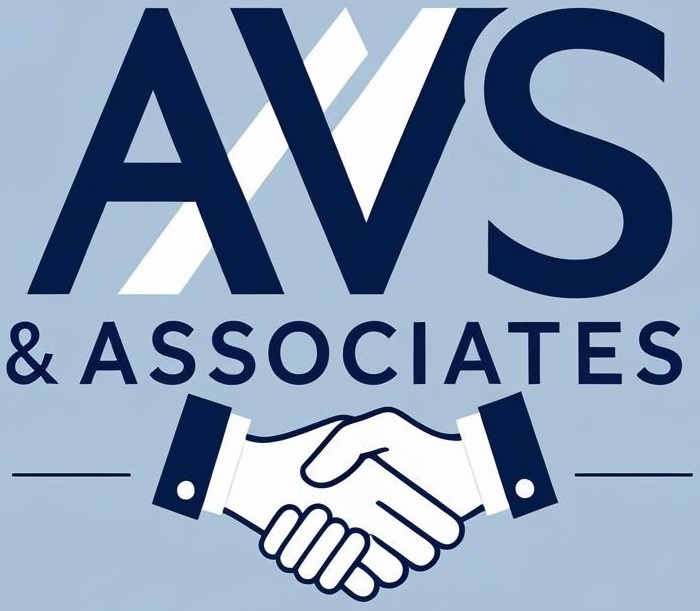- Basement, 938/3, Sewak Chamber, Block 49A, Karol Bagh, Delhi – 110005
- team@avsrelation.com
- +011 – 41155325
- +91 9818403321
Start Your NGO with — AVS & ASSOCIATES
- Start your NGO the right way — with expert legal support, transparent pricing, and end-to-end compliance handled by AVS & Associates.
- Relationship is Priority
- Serving Clients Across Delhi NCR | PAN India
Ready to Get Started? Let’s Talk.
Setting up an NGO isn’t just about paperwork — it’s about starting with confidence, clarity, and the right legal foundation.
At AVS & Associates, we help you:
- Select the right legal structure
- Prepare and draft all legal documents
- File everything correctly and on time
- Ensure post-registration compliance
- Position your NGO for funding and CSR partnerships
Start an NGO
Whether you’re aiming to uplift a community, support a cause, or build a scalable impact initiative, the first step is choosing the right legal structure.
Let us take care of the process — so you can focus on the mission that matters.
Types of NGO Structures in India
You can register your NGO as a Trust, Society, or Section 8 Company — each with its own legal framework and purpose.

Trust
A Trust is formed when a settlor transfers property or assets for charitable or religious purposes. Governed by the Indian Trusts Act, 1882 (or relevant State Acts), trusts are simple to manage and ideal for family-run or small-scale charitable initiatives.

Society
A Society is a group of individuals united for a social, cultural, or charitable purpose. It is governed by the Societies Registration Act, 1860 (with State-level amendments). Societies are member-driven and operate democratically.

Section 8 Company
A Section 8 Company is a not-for-profit entity registered under the Companies Act, 2013. It is ideal for large-scale NGOs seeking structured governance, foreign or corporate funding, and high credibility.
What’s the Difference?
Each legal structure has its own level of formality, cost, and legal obligation. Here’s how they compare:

Trust
Trusts are the simplest and most cost-effective NGO structure. They have minimal procedural requirements and are typically governed by a small group of trustees.

Society
Societies are moderate in both compliance and running cost. They require a minimum of 7 members and function through a democratically elected managing committee.

Section 8 Company
Section 8 Company offers high credibility, especially for CSR or international funding, but also involves higher running costs and strict compliance requirements such as ROC filings, board meetings, and statutory audits.
Comparison Table
| Criteria | Trust | Society | Section 8 Company |
| Governing Law | Indian Trusts Act, 1882 (State Acts) | Societies Registration Act, 1860 | Companies Act, 2013 |
| Minimum Members Required | 2 trustees (usually) | 7 members | 2 directors, 2 members |
| Suitable For | Small/family-run charitable initiatives | Community or membership-based initiatives | Professional, large-scale NGOs |
| Ease of Formation | Easiest | Moderate | Most complex |
| Running Costs | Lowest | Moderate | Highest |
| Compliance Burden | Minimal | Moderate | High (ROC filings, board meetings, audits) |
| Control & Flexibility | Centralized with trustees | Democratic (managing committee) | Formal board structure |
| Credibility for Donors/CSR | Basic | Acceptable | Highest |
| Eligibility for 80G/12A/FCRA | Yes | Yes | Yes |
| Preferred For | Traditional philanthropy | Social awareness, education, arts | CSR, foreign funding, national expansion |
| Penalty for Non-Compliance | Low or minimal enforcement | Moderate consequences from Registrar | Stringent penalties under Companies Act; strict enforcement |
Documents Required
Common Documents (All Types)
- Aadhaar Card & PAN Card of all members/trustees/directors
- Passport-size photographs
- Address proof (Voter ID, Passport, Utility Bill)
- Proof of registered office (Rent Agreement or Electricity Bill + NOC)
- Draft of NGO objectives or activity plan
- Digital Signature Certificate (only for Section 8 Company)
Specific Documents by Structure
Trust
- Drafted & notarized Trust Deed
- Two witnesses
- Settlor and trustee ID proof
Society
- Memorandum of Association (MOA)
- Rules & Regulations / Bylaws
- List of all members with signatures
- Affidavit from President or Secretary
Section 8 Company
- MOA & AOA in prescribed format
- DSC & DIN for directors
- Name approval (via RUN)
- Form INC-14, INC-15 declarations
- Incorporation via SPICe+ form on MCA portal
Ready to Get Started? Let’s Talk.
Setting up an NGO isn’t just about paperwork — it’s about starting with confidence, clarity, and the right legal foundation.
At AVS & Associates, we help you:
